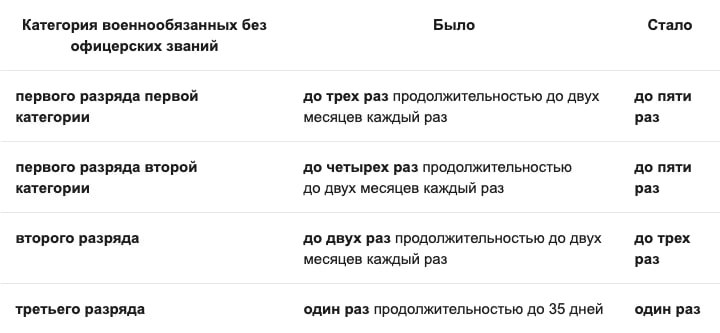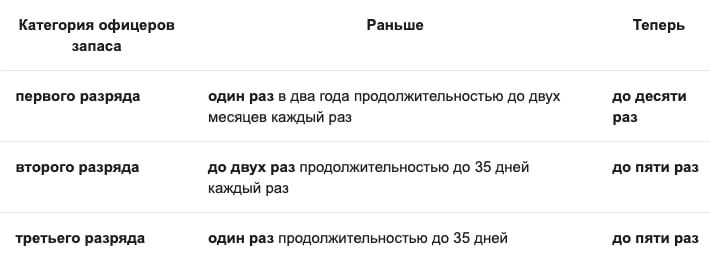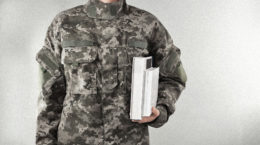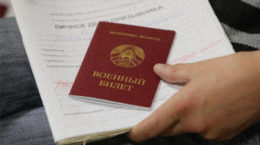The Belarusian regime adopted a regulation allowing it to draft more people to military reserve trainings, do it more often and for a much longer time. Practically, the new rules allow to have a large number of civilians under arms simultaneously with the active army.
We are speaking about the Decree of the Council of Ministers of the Republic of Belarus № 525 of August 10, 2023, which in its turn introduces amendments to the Decree of the Council of Ministers of the Republic of Belarus № 78 dated January 27, 2004. The new decree has already entered into force.
The new decree introduces a whole number of changes into the established order of military and special reserve trainings. The reserve trainings themselves are divided into several categories: conscripts training assemblies, assemblies for military professions training, trainings for emergency reserve equipment maintenance; exercise to check mobilization readiness of military units and other military formations (checking trainings). The classification has not been subject to any changes, however, the conditions of undergoing those trainings have been drastically modified.
The most noticeable change is in the significant increase of duration of several categories of military trainings. For example, previously the checking trainings lasted for up to 35 days, but now their duration has been increased to up to 60 days. It means that civilians will spend the whole two months each year in different military units and under arms, thus, creating an operative reserve for the Armed Forces.
Also, several categories of persons subject to military duty can be drafted to military reserve trainings more often and/or for a longer term. Previously, the normative acts clearly stipulated how many times and for what duration people subject to military duty could be drafted for military exercise. The new enactment, however, does not mention at all the duration of the reserve trainings and stipulates only the number of drafts that can be executed. As far as servicemen without officer ranks are concerned, they can be drafted to reserve trainings much more often while they are in the reserves (depending on their category).
| Category of people with no officer ranks subject to military duty | Before | Now |
| first category, first class | up to three times, each time up to two months | up to five times |
| first category, second class | up to four times, each time up to two months | up to five times |
| second category | up to two times, each time up to two months | up to three times |
| third category | one time up to 35 days | one time |

The situation with the reserve officers is much worse. First of all, the exact duration of reserve trainings and their periodicity are not stipulated in the new version. Second of all, the frequency of such reserve trainings for them has sharply increased. If previously a first category reserve officer could be drafted for such a training not more often than once in two years and not longer than for two months, now he can be drafted up to 10 times in the same two years and practically for any duration period.
| Category of the reserve officers | Before | Now |
| first category | once in two years for no longer than two months | up to ten times |
| second category | up to two times, each time up to 35 days | up to five times |
| third category | one time up to 35 days | up to five times |

Also, the Belarusian regime has decided to widen the reservist base, similarly to the conscription to compulsory military service. Before, only “persons liable, medically fit and physically qualified for military duty” were drafted to military and special reserve trainings. Nevertheless, now “persons liable and physically qualified for military duty, fit for military service with minor restrictions, as well as partially fit for military service in war time (with their written consent)” will also be sent to reserve trainings. That is, a lot of Belarusian men suffering from chronic diseases will also be dragged out of peaceful life and sent to military camps.
However, the strangest innovation of the system of military reserve trainings is that not only the Ministry of Defence is going to be responsible for them, but also the State Security Committee – the KGB. Previously, the task to choose candidates to be drafted to military and special reserve trainings was imposed on military registration and enlistment offices only (as well as the task to summon person liable for military duty for verification of the registration data). Now, however, regional offices of the KGB can also do that. Correspondingly, if previously a man called up for reserve trainings had to arrive to his military registration and enlistment office with a draft notice, not he will probably have to arrive to the “KGB Administration office for the certain region”.
It is difficult to assume the reason for that. Could be the desire of the regime to call up for military reserve trainings as many men as possible, could be its desire to make the uniformed agencies control each other more severely.
Our House










